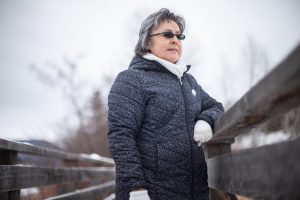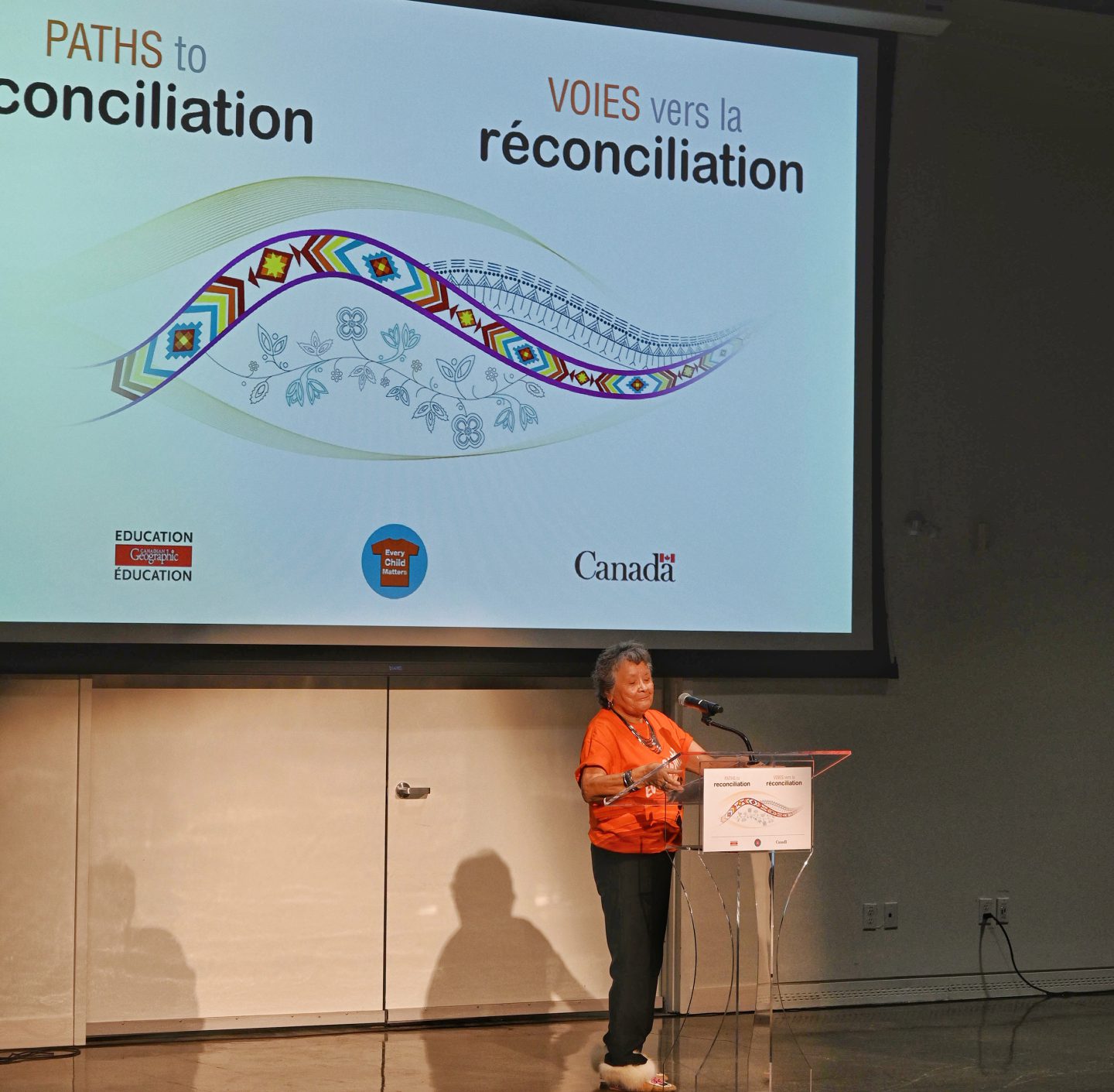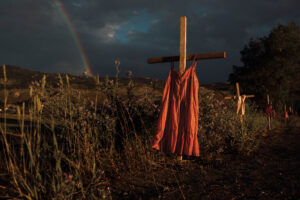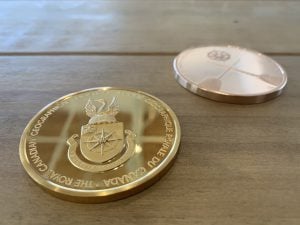
People & Culture
Survivor: The story of Phyllis Webstad and Orange Shirt Day
Phyllis Webstad turns her residential school experience into a powerful tool for reconciliation through Orange Shirt Day
- 1904 words
- 8 minutes
People & Culture
New project to educate Canadian students on the impact and legacy of the residential school system announced on Orange Shirt Day

The Royal Canadian Geographical Society and the Orange Shirt Society are partnering on a new educational project aimed at sharing the truth of the Indian residential school system with students across Canada.
The organizations announced the Paths to Reconciliation project with two events on Orange Shirt Day, an annual event started in 2013 to confront misunderstandings and misinformation about the impact and legacy of the residential school system.
The first event was held in Ottawa, where more than 150 students from local schools gathered at RCGS headquarters at 50 Sussex for a day of learning and remembrance aimed at inspiring them to take action on their paths to reconciliation. Irene Barbeau, a survivor of residential schools in Moose Factory and Sault Ste. Marie, Ont., spoke to the students in the Alex Trebek Theatre about her experience and their responsibility to share the truth.
“Life in a residential school is very regimented. Every morning a bell would ring to wake you up … then a bell would ring to tell you to go down to breakfast. And then you went to school for the rest of the day,” she said. “You didn’t go home for Christmas. You didn’t go home for Easter; you didn’t celebrate Mothers Day or Fathers Day.”
Young people have an important role to play in Canada’s journey to reconciliation, Barbeau said. “Reconciliation is not going to happen in my lifetime. It will happen in yours.”
Starting this fall and throughout 2020, the Paths to Reconciliation project will tour 24 schools across the country to deliver first-person accounts of the residential school system, followed by a series of complementary Canadian Geographic Education activities, including the Indigenous Peoples Atlas of Canada giant floor map with a new residential schools learning module, maps, an interactive website and other multimedia content. Phyllis Webstad, who founded the Orange Shirt Society in 2013 to raise awareness about the impact of residential schools, will share with students her personal experience attending a residential school and its effect on her life in the context of the broader story of the thousands of survivors.
“The motivation behind Orange Shirt Day is to make a change to understand what Indigenous People went through at residential schools,” says Webstad. “Life can be understood looking backward, but we must live together looking forward if reconciliation between our people is to happen.”
For Charlene Bearhead, the RCGS’s Director of Reconciliation, the Paths to Reconciliation project provides next-level education tools and the environment in which to demonstrate the incredible power of dialogue and education in fuelling positive change.
“This initiative provides an important opportunity to continue to honour and amplify the voice of Phyllis and all survivors,” says Bearhead. “Paths to Reconciliation will take Canadians deeper down the path of truth seeking, and reconciliation, based on survivor guidance, coupled with the research expertise and support of the Indian Residential School History and Dialogue Centre at the University of British Columbia, and the RCGS’s track record and capacity for collaboratively creating dynamic, authentic and engaging educational materials.”
Hundreds of students gathered @CanGeo + @RCGS_SGRC HQ @50SussexEvents to recognize #OrangeShirtDay2019 (they’re getting shirts later!) & launch the new Paths to Reconciliation project pic.twitter.com/nhEAiYfo0f
— Aaron Kylie (@aaronkylie) September 30, 2019
"I went from an Indigenous culture to a non-Indigenous culture. Everything was different. I was fortunate enough to have a 'good' experience... and to me, 'good' just means I didn't get abused." - Survivor Irene Barbeau tells her story of the residential schools she had to attend pic.twitter.com/rJRC9o9lpJ
— Canadian Geographic (@CanGeo) September 30, 2019
While residential schools were operated in Canada as early as the first half of the 17th century, the Gradual Civilization Act passed in 1857 legislated the assimilation of Indigenous People to “no longer be deemed an Indian, but a regular British subject,” using an oppressive education system. By 1920, legislation was passed to make residential school attendance compulsory for Indigenous children between the ages of seven and 15. Children were forcibly taken from their families by priests, government Indian agents and police officers. Many Indigenous students suffered physical, mental and sexual abuse while attending these schools. The impact of this assimilative system on survivors resulted in the loss of their languages, cultures, identities, self-esteem, and in some cases their very lives, while directly attacking systems of knowledge, child rearing and health. Residential schools continue to have significant negative impacts, both direct and indirect, on generations of Indigenous People.
Are you passionate about Canadian geography?
You can support Canadian Geographic in 3 ways:

People & Culture
Phyllis Webstad turns her residential school experience into a powerful tool for reconciliation through Orange Shirt Day

People & Culture
Indigenous journalists are creating spaces to investigate the crimes committed at Indian residential schools, grappling with unresolved histories and a reckoning that still has a long way to go

People & Culture
Award recipients honoured in the first virtual Annual General Meeting and Fellows Show.

People & Culture
The story of how a critically endangered Indigenous language can be saved